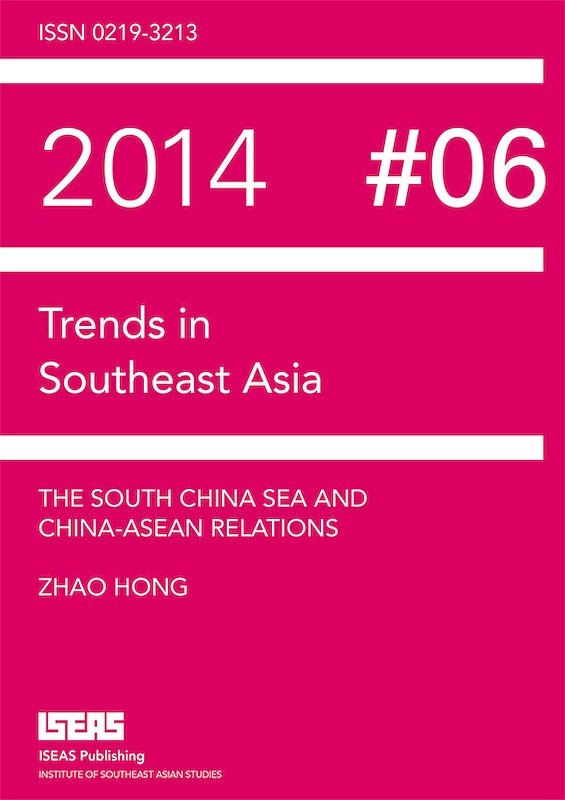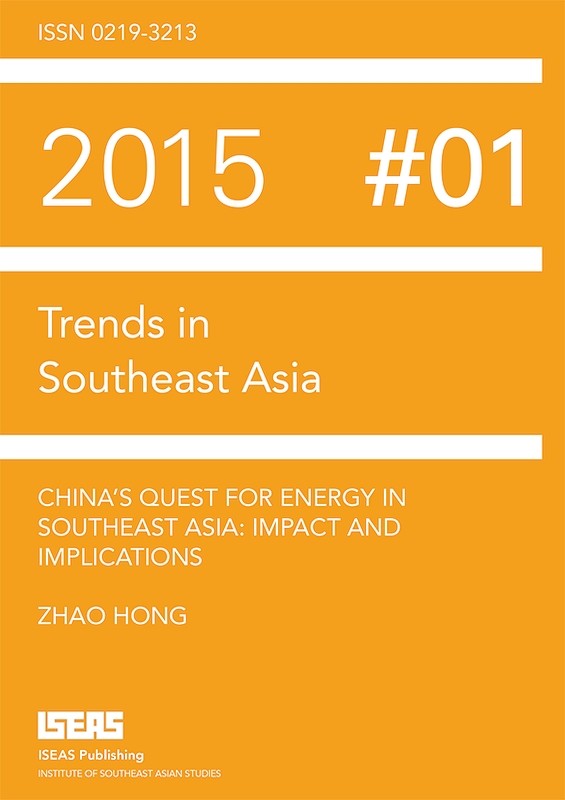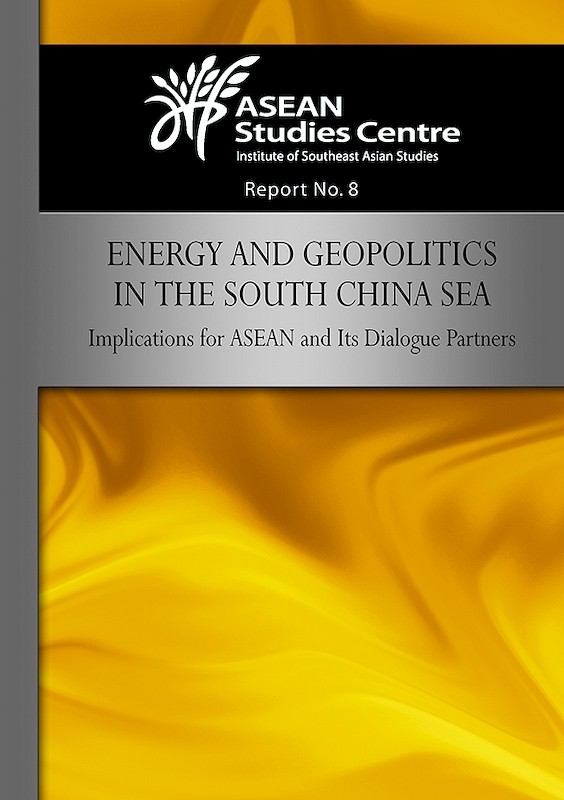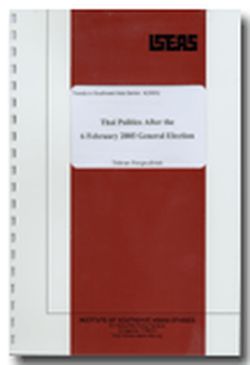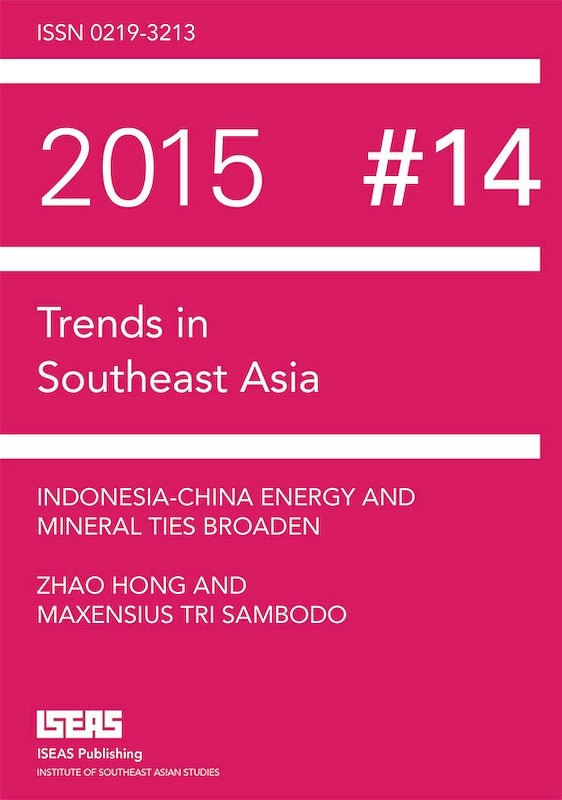China and ASEAN: Energy Security, Cooperation and Competition
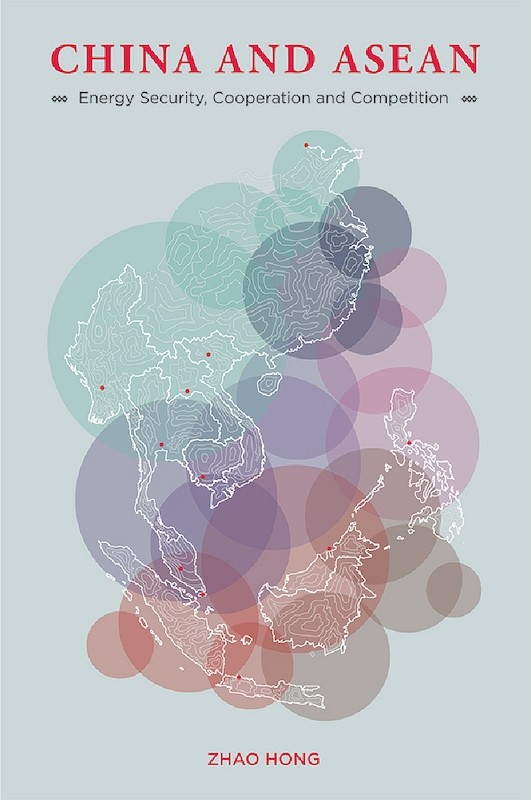
Zhao Hong, author
Date of publication:
2015
Publisher:
ISEAS – Yusof Ishak Institute
Number of pages:
229
Code:
BM530
Soft Cover
ISBN: 9789814695251
Reviews
Dr Robert Curry, California State University Sacramento and the University of Hawaii, Manoa
"The more interesting and innovative part of the book is Zhao Hong's concept of The New Global Energy Order and the debates to which the concept leads. (....) The author's effort to detail the complexities of the China, ASEAN, and energy resource security nexus is so deep and lengthy that his work is difficult to summarize leaving this reviewer with no option but to form a general conclusion: that is, his effort has produced a lucid, well-documented, highly readable and definitely serious, important and worthwhile volume.
Zhao Hong's focus on energy security as a factor in the South China Sea dispute is useful because as he notes China's search for energy resources in Southeast Asia can help deepen China-ASEAN relations in cooperative terms.
His book is topical because of the South China Sea issue, it's well-written and thoroughly researched and as a result the volume is likely to interest scholars, students and members of the public and particularly policy-makers whose interests and responsibilities encompass the nexus. The volume is also timely: for example, the topics discussed at a November 2015 meeting of ASEAN defense ministers held in Singapore that included China's and the United State's defense chiefs were identical to those covered in Zhao Hong's volume.
Two concluding points: first, the book would be a useful addition to reading lists in Asia-oriented courses ranging from economies, political science, geography and business administration and second, this reviewer has taught Asian Economic Development at the University Manoa during the past 15 years and if the book had been available, it would have been required reading!"
Dr Philip Andrews-Speed, Principal Fellow & Head, Energy Security Division.
"Zhao Hong successfully brings together two poorly understood and contentious subjects: political relations between China and ASEAN, and China's involvement in Southeast Asia's energy and mineral resources. He has built on his previous publications to provide a useful and readable synthesis of the key issues and questions. ... The structure and content of this book caters for the relatively uninitiated reader in that it provides useful syntheses of key issues in a systematic manner, drawing on a wide range of literature and perspectives. ... Few policy analysts of international repute are publishing detailed accounts of energy and energy politics in Southeast Asia. So Zhao Hong's book makes an important contribution. The book is well suited to the general policy readership, covering as it does, many aspects of energy, economic and political relations between China and ASEAN."
"The more interesting and innovative part of the book is Zhao Hong's concept of The New Global Energy Order and the debates to which the concept leads. (....) The author's effort to detail the complexities of the China, ASEAN, and energy resource security nexus is so deep and lengthy that his work is difficult to summarize leaving this reviewer with no option but to form a general conclusion: that is, his effort has produced a lucid, well-documented, highly readable and definitely serious, important and worthwhile volume.
Zhao Hong's focus on energy security as a factor in the South China Sea dispute is useful because as he notes China's search for energy resources in Southeast Asia can help deepen China-ASEAN relations in cooperative terms.
His book is topical because of the South China Sea issue, it's well-written and thoroughly researched and as a result the volume is likely to interest scholars, students and members of the public and particularly policy-makers whose interests and responsibilities encompass the nexus. The volume is also timely: for example, the topics discussed at a November 2015 meeting of ASEAN defense ministers held in Singapore that included China's and the United State's defense chiefs were identical to those covered in Zhao Hong's volume.
Two concluding points: first, the book would be a useful addition to reading lists in Asia-oriented courses ranging from economies, political science, geography and business administration and second, this reviewer has taught Asian Economic Development at the University Manoa during the past 15 years and if the book had been available, it would have been required reading!"
Dr Philip Andrews-Speed, Principal Fellow & Head, Energy Security Division.
"Zhao Hong successfully brings together two poorly understood and contentious subjects: political relations between China and ASEAN, and China's involvement in Southeast Asia's energy and mineral resources. He has built on his previous publications to provide a useful and readable synthesis of the key issues and questions. ... The structure and content of this book caters for the relatively uninitiated reader in that it provides useful syntheses of key issues in a systematic manner, drawing on a wide range of literature and perspectives. ... Few policy analysts of international repute are publishing detailed accounts of energy and energy politics in Southeast Asia. So Zhao Hong's book makes an important contribution. The book is well suited to the general policy readership, covering as it does, many aspects of energy, economic and political relations between China and ASEAN."
About the publication
This book examines the energy resource relations between China and ASEAN countries. It addresses the following issues: as the world energy demand shifts East because of the rise of China, ASEAN community and other emerging Asian economies, and as the Greater Indian Ocean and the South China Sea become the world's energy interstates, will geopolitical tensions over energy resources spark conflicts in the region, especially in the South China Sea? Against the background of China's rise and its growing influence in Southeast Asia, will China's quest for energy resource cooperation be viewed as a threat or opportunity by its neighbouring countries? Since the United States, Japan and India are important players in Southeast Asia, does the shifting geopolitics of energy give these big powers a new strategic tool in an intensifying rivalry with China? Or does the changing geopolitics of energy resources create more areas of shared interests and opportunities for cooperation between these big powers to balance, rather than increase, tensions in Southeast Asia?
This book will be of interest to anyone who is keen to learn how the world, especially the United States, can accommodate and adapt to the new global energy dynamics and how China and ASEAN operate as new players in global and regional energy markets.
This book will be of interest to anyone who is keen to learn how the world, especially the United States, can accommodate and adapt to the new global energy dynamics and how China and ASEAN operate as new players in global and regional energy markets.
Contents
-
China and ASEAN: Energy Security, Cooperation and Competition
[Whole Publication, ISBN: 9789814695268], by Zhao Hong, author -
Preliminary pages
-
1. Introduction: China, ASEAN, and the New Global Energy Order
-
2. Economic Growth and Energy Security
-
3. China's Energy Quest in Southeast Asia
-
4. Case Study (1): Myanmar
-
5. Case Study (2): Indonesia
-
6. Energy Resource Competition and the South China Sea Disputes
-
7. Conclusion
-
Index
-
About the Author

